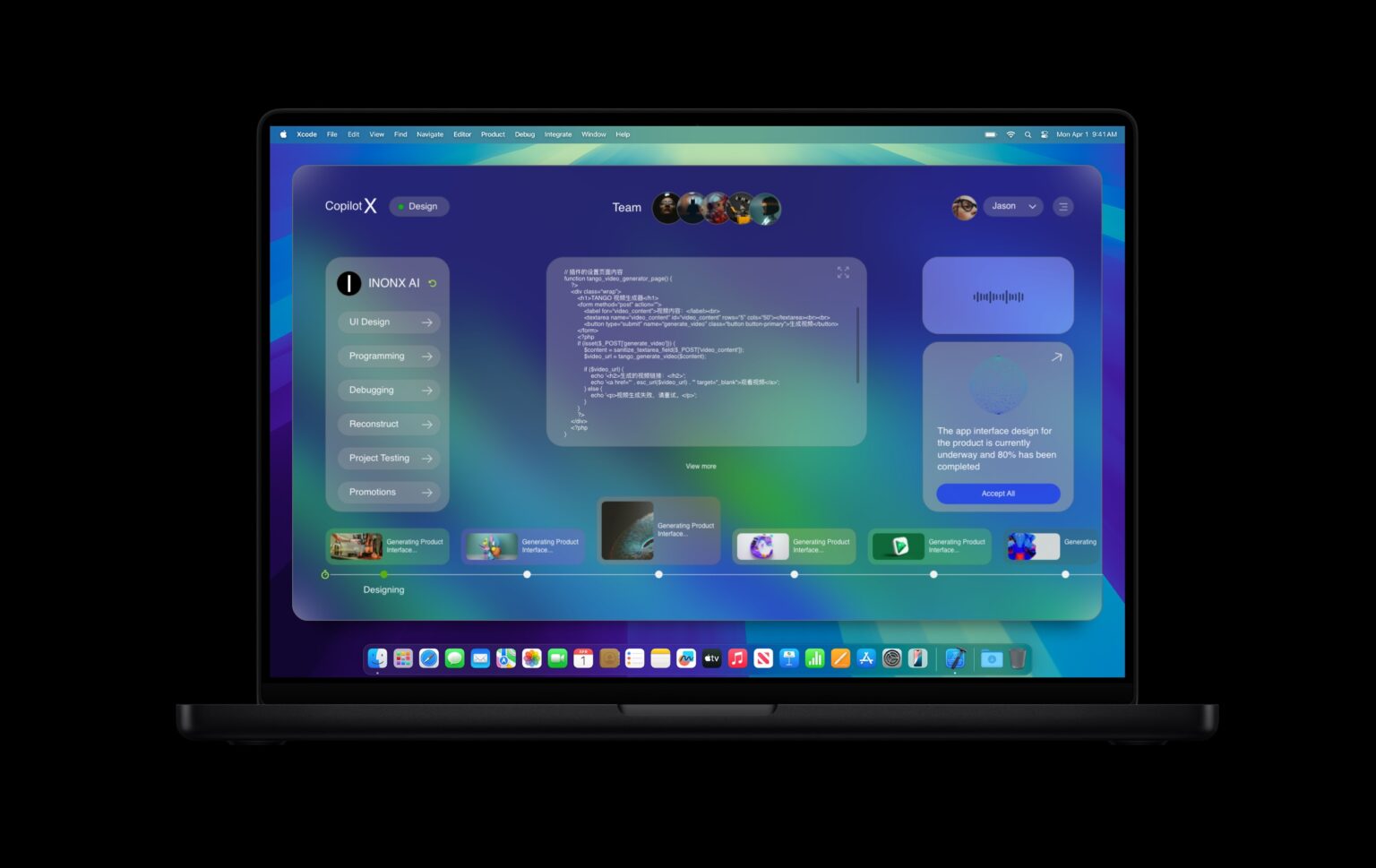In an era defined by rapid technological advancements, the integration of artificial intelligence (AI) is reshaping various industries, with smart manufacturing standing at the forefront of this revolution. AI-enabled Intelligent Systems (AIS) have emerged as pivotal players, driving efficiency, flexibility, and quality in manufacturing processes. This article delves into the latest trends, updates, and applications of AI in smart manufacturing, with a spotlight on innovative platforms such as Hugging Face that are facilitating this transformative journey.
.
## The Rise of AI-Enabled Intelligent Systems in Manufacturing
AI-enabled Intelligent Systems confer the ability to analyze vast amounts of data, predict outcomes, and automate processes. In the realm of smart manufacturing, these systems enhance decision-making and optimize production lines. As manufacturers strive for greater efficiency and reduced operational costs, AIS presents a compelling solution that aligns with the industry’s shift towards digitization and smart technology adoption.
.
## Trends Influencing AI in Smart Manufacturing
### 1. Predictive Maintenance
One of the most significant trends is predictive maintenance enabled by AI technologies. By leveraging machine learning algorithms, manufacturers can analyze historical data from machinery and sensors to predict when equipment is likely to fail. This proactive approach reduces downtime and maintenance costs, ultimately leading to a more efficient operation. Industry giants like Siemens and GE have already begun incorporating these systems into their factory environments, reflecting a growing acceptance of predictive analytics.
.
### 2. Smart Supply Chain Management
AI is also revolutionizing supply chain management through intelligent forecasting and demand planning. AIS can analyze consumer trends, seasonal variations, and market dynamics, allowing manufacturers to optimize inventory levels and streamline procurement processes. Companies such as IBM are leveraging AI and blockchain technology to ensure greater transparency and efficiency throughout their supply chains.
.
### 3. Enhanced Quality Control
Quality control is another critical application of AI in smart manufacturing. Intelligent systems equipped with computer vision can inspect products for defects at a rate and accuracy that surpasses human capabilities. Such technologies not only improve product quality but also reduce waste and rework times, promoting sustainability initiatives in manufacturing practices.
.
### 4. Increased Automation through Robotics
Robotics, combined with AI, is making strides in automating repetitive tasks, minimizing human intervention, and enhancing operational precision. Collaborative robots (cobots) work alongside humans, equipped with AI algorithms to learn from their surroundings and adapt to changing circumstances. As reported by ABI Research, the market for AI-powered robotics in manufacturing is set to grow exponentially in the coming years.
.
## The Role of Hugging Face in Advancing AIS
Hugging Face, a leading platform for natural language processing (NLP), has gained immense popularity amongst developers seeking robust tools to create and deploy AI models. Its versatility allows users to harness AI capabilities for smart manufacturing applications, from data analysis and insights generation to enhancing human-robot interactions.
### Natural Language Processing Applications
In smart manufacturing, NLP can be utilized to streamline communication between machines and operators. For instance, by employing Hugging Face’s models, manufacturers can develop intelligent chatbots that parse maintenance logs and assist workers in troubleshooting issues with equipment. This elimination of language barriers facilitates a seamless operation floor, where humans and machines can work in concert.
.
### Knowledge Sharing and Collaborative Learning
Hugging Face’s extensive library of pre-trained models accelerates the development of AI applications across various manufacturing domains. Manufacturers can leverage these shared models for knowledge transfer, using them as baselines for further customization in their specific context. Such collaborative learning fosters innovation and accelerates the implementation of AIS.
.
## Industry Applications: Case Studies of AI in Smart Manufacturing
### Case Study 1: Bosch’s Predictive Quality Solutions
Bosch has implemented AI-driven quality solutions in its manufacturing plants, focusing on identifying potential defects during the assembly process. By using machine learning algorithms that analyze data in real-time, they have reported a 30% reduction in defect rates. This outcome not only improves customer satisfaction but also reduces the costs associated with product recalls and waste.
.
### Case Study 2: Siemens’ Digital Twin Technology
Siemens has pioneered the use of digital twins—virtual representations of physical assets—integrated with AI algorithms. This technology allows for real-time simulations and performance monitoring of manufacturing processes. The integration of AI enables more accurate predictions regarding system performance, leading to optimized production schedules and resource allocation.
.
### Case Study 3: Tesla’s AI-Driven Assembly Lines
Tesla is at the vanguard of utilizing AI in its assembly lines, employing intelligent robotics and machine learning to automate intricate processes. Their use of real-time data analytics helps in adjusting production workflows based on demand fluctuations, ensuring that resources are utilized most effectively. This AI integration has been integral to Tesla’s ability to scale production rapidly.
.
## Technical Insights: Navigating Challenges in Implementation
While the benefits of AI in smart manufacturing are compelling, several technical challenges must be addressed during implementation.
### 1. Data Integration
To fully leverage AI, manufacturers must integrate data from disparate sources—machines, sensors, and enterprise systems. This integration presents technical hurdles, as not all systems are designed to communicate seamlessly. An investment in robust data infrastructure and middleware solutions is essential to overcoming these barriers.
.
### 2. Change Management
Successful integration of AIS requires a cultural shift within organizations. Employees often resist changes to established workflows. Manufacturers must prioritize change management strategies, including comprehensive training and communication tactics, to foster a culture of innovation and acceptance of new technologies.
.
### 3. Cybersecurity Risks
As AI systems become more integrated, the potential for cybersecurity vulnerabilities escalates. It is critical for manufacturers to adopt advanced security measures and protocols to protect their data and systems from cyber threats. Collaboration with IT security experts can ensure that AIS implementations are safeguarded against potential breaches.
.
## Conclusion: Embracing the AI Revolution in Smart Manufacturing
AI-enabled Intelligent Systems are no longer a futuristic concept but a transformative reality reshaping the landscape of smart manufacturing. With applications ranging from predictive maintenance to collaborative robotics, the benefits are evident. Companies like Hugging Face are providing essential tools to leverage AI’s full potential in this sector.
.
The journey towards implementing AI in manufacturing may be fraught with challenges, but the rewards of increased efficiency, reduced costs, and enhanced production quality underline its necessity. As businesses invest in these technologies, embracing a culture of innovation will be key to thriving in the rapidly evolving manufacturing arena. The future is here—it’s time for manufacturers to unlock the potential of AI-driven solutions for sustainable growth and competitiveness.
.
### Sources:
– Siemens AG. (2023). “How Siemens uses AI to enhance manufacturing efficiency.”
– Bosch Group. (2023). “Predictive Quality Solutions – Revolutionizing Quality Control.”
– ABI Research. (2023). “The Future of Robotics in Smart Manufacturing.”
– Hugging Face Inc. (2023). “Transforming Artificial Intelligence Development with Our Tools.”
– Tesla Inc. (2023). “Tesla’s AI-Driven Innovations and Manufacturing.”
– IBM Corp. (2023). “AI in Supply Chain Management: A New Era of Efficiency.”
























